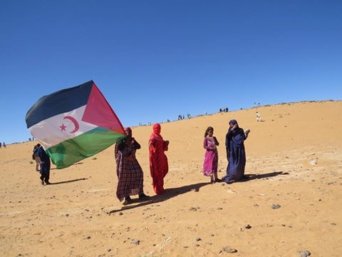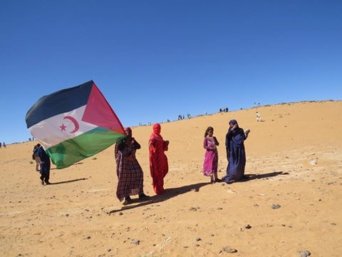- About
- Topics
- Picks
- Audio
- Story
- In-Depth
- Opinion
- News
- Donate
- Signup for our newsletterOur Editors' Best Picks.Send
Read, Debate: Engage.
| located: | Western Sahara, Algeria, Morocco |
|---|---|
| editor: | Bob Koigi |
The recent resumption of talks between parties to the disputed Western Sahara region in Morocco have offered grim hope at an amicable solution to a decade-long standoff that is now threatening regional peace and stability.
The subject of mediation, the phosphate-rich desert the size of Britain, whose people have been clamouring for independence from the Kingdom of Morocco and the chest thumping of the Kingdom to have the region under its control, has seen one of the longest African deadlocks, which started in 1975 after Spain gave up control of the territory. While Mauritania then also claimed ownership, it has since backtracked and recognised Western Sahara as an autonomous territory. The UN intervention in 1991 led to a ceasefire that holds to date with the deployment of the United Nations Mission for the Referendum in Western Sahara.
But the situation has been dicey since, with Algerian-backed Polisario Front aggressively pushing for secession and a referendum for full independence from Morocco. Morocco, on the other hand, can only allow for the autonomy of the Saharawi people who would remain a unit within the Kingdom.
The hardline stances have made relations between Algeria and Morocco frosty, with Morocco making radical decisions at any move that seem to grant the Saharawi people independence, including a withdrawal from the African Union 34 years ago. It has since been readmitted.
There have been international rulings and provisions that seem to recognise Western Sahara as a self-governing territory, among them a European Court of Justice ruling that an EU-Morocco fishing agreement did not apply to the territory. The United Nations classifies Western Sahara as a “non-self-governing territory” while 84 states have recognised it otherwise.
But as the recent talks got underway, six years after they collapsed, and are now being approached with cautious optimism, tens of hundreds of ordinary people are still stuck in tents and live each day with the fear of a possible return to conflict.
Trade has been paralysed and the protracted standoff is now threatening to spill over to the region as neighbouring states take sides. There can never be an alternative. Parties to the negotiation must find a definitive and lasting solution which calls for ceding grounds. The perceived goodwill at the negotiation table is not enough, it must translate into something tangible that guarantees the citizens of Western Sahara the peace and closure that they have long yearned for.

